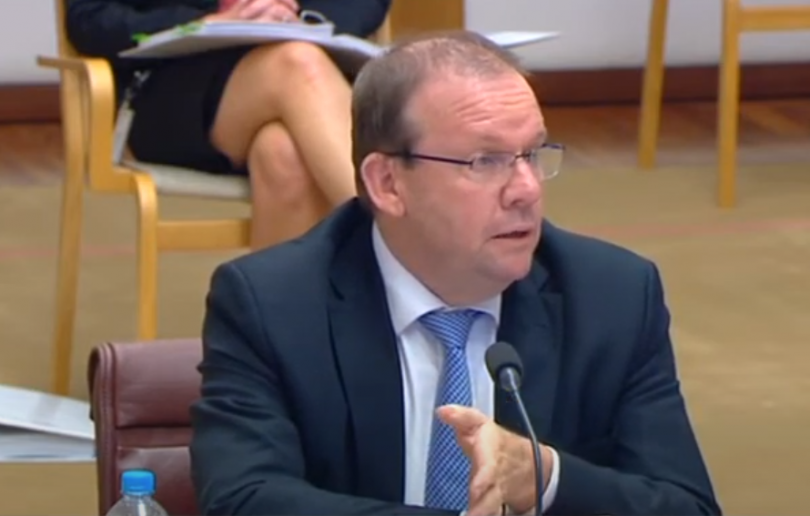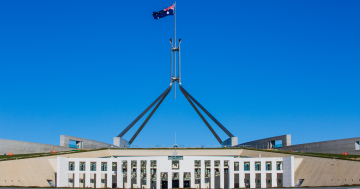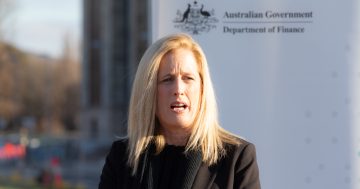
Auditor-General Grant Hehir addressing a Senate committee. Photo: Parliament House.
Federal Auditor-General Grant Hehir has fired a warning shot at public sector agencies about how they spend taxpayers’ money on government projects and administer grants programs.
He has also delivered two blistering reports that fed the so-called sports and car park rorts scandals.
In his foreword to the Australian National Audit Office’s annual report for 2020-21, Mr Hehir flagged that the ANAO would place a greater emphasis on whether public servants’ decisions met ethical standards.
He said public sector leaders were legally required to govern their entities in a way that promoted the proper use and management of public resources, defined under the Public Governance, Performance and Accountability Act as “efficient, effective, economical and ethical”.
“The importance of ethics in the use of resources has been highlighted in several audits, particularly relating to procurement and grants administration,” Mr Hehir said.
“I believe that greater scrutiny in this area will help ensure that the public sector continues to look beyond technical compliance and focuses on operating in line with community expectations of integrity and honesty.”
He said the ANAO was looking to design and implement an appropriate audit framework against which to test ethics.
My Public Sector
In both the sports and car park rorts affairs, public servants were accused of enabling Morrison Government ministers to manipulate grants programs to favour Coalition or marginal seats in the lead-up to the last federal election.
The audit reports were highly critical of how grants were assessed and allocated, finding that most of the grants ended up in Coalition seats or seats it had a chance of winning.
Mr Hehir said grants administration was only one area where agencies were falling short, highlighting regulation and procurement as well.
“Our audit work continues to find evidence that the risk management approaches of regulatory frameworks are not implemented in a way to deliver the expected level of compliance with mandatory requirements,” he said.
“Likewise, within the public sector itself, the lack of effective regulation of public sector activities can often be at the expense of effective outcomes.”
This was particularly so in the crucial area of cyber security where little assurance was given to the government or the Parliament of adherence to mandatory requirements, other than through external audit, Mr Hehir said.
He said audits continued to show that the public sector’s approach to procurement regularly fell short of expectations.
“Developing capability in core activities should be a priority for public sector leaders,” Mr Hehir said. “Our audit work will continue to focus on the sector’s core activities, including the relationship between compliance and organisational culture.”
Mr Hehir also took aim at sloppy record-keeping and the problems that caused.
“A lack of proper documentation of decision-making processes makes it difficult for not only the Parliament, but entities themselves, to be assured that the activity was undertaken with complete integrity and in compliance with the law — with all necessary information at hand, and without improper influence or consideration of inappropriate factors,” he said.
Mr Hehir welcomed funding in the Budget that will help the ANAO rebuild and meet its obligations after a year in which it was only able to meet its target of tabling 42 performance audits by careful management, reducing the size of teams and increasing work hours.
“These approaches are not sustainable from an audit quality and staff retention and well-being perspective,” he said.
Mr Hehir said the funding would enable the ANAO to operate on a more sustainable basis, to meet mandated financial statements audits, an appropriate program of performance audits and the staged roll-out of performance statements audits.
But recruiting and training the staff to deliver this work would present a significant challenge to the ANAO over the next several years, Mr Hehir said.
The ANAO had also developed a multi-year strategy for performance audits that focuses on the Australian Government’s response to the COVID-19 pandemic.





















